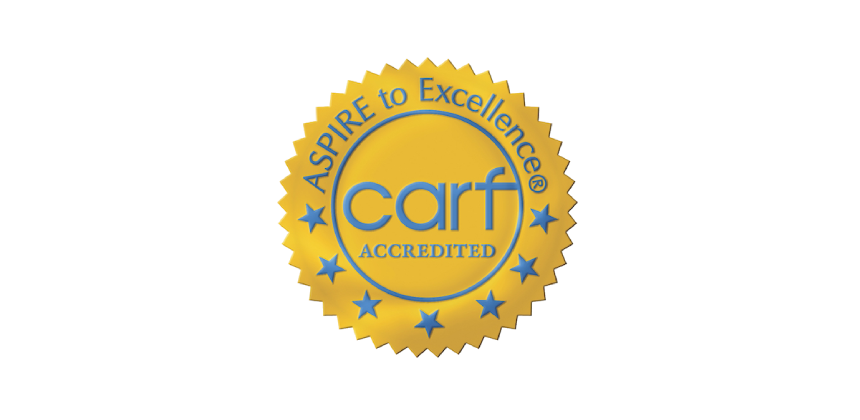About Brain Injury Rehabilitation
Brain injuries are among the most complex to treat. They can be caused by a wide range of traumatic events – including car accidents and sports injuries – or from non-traumatic events – including stroke and cardiac arrest. Regardless of the cause, these injuries have the potential to affect each person differently. At the Orlando Health Advanced Rehabilitation Institute, we understand the importance of helping you and your family develop a care plan built around your individual needs. Just as your injury is unique, so too will be your journey to recovery.
We have more than 35 years of experience providing brain injury care with a team that includes neurologists, neurosurgeons, neuropsychologists, physical therapists, occupational therapists, speech language pathologists, recreational therapists, nurses, registered dietitians and clinical social workers. With a multidisciplinary approach, our rehabilitation specialists work together to give you the best possible outcome and help you get the most out of your life.
Brain injuries are often considered emergencies and can become worse if left untreated. The initial assessment is typically done by first responders on the scene of the incident or by emergency room personnel. Part of this initial screening is a test that evaluates your ability to do things like move your eyes, follow directions, move your body parts and carry on a conversation. Valuable information also can be gathered from family, friends or bystanders who witnessed the incident. This could include details about loss of consciousness and specifics about the injury.
Other diagnostic options include:
Computed tomography (CT) scan: This painless test uses a series of X-rays and a computer to create highly detailed images of your brain. It can reveal fractures, brain bleeding, blood clots, brain tissue bruising and tissue swelling.
Magnetic resonance imaging (MRI): Radio waves and powerful magnets are used to create detailed images of your brain. These scans, often with the help of special contrast dyes, can reveal damage to brain tissue and the thin membranes that cover it.
Intracranial pressure monitor: To measure the pressure inside your skull, your doctors may insert a tiny probe to monitor it. Excess pressure and swelling can cause damage to your brain.
Functional assessments: During your rehabilitation, your team will periodically assess your progress by measuring your physical and cognitive abilities. This could include your ability to dress yourself, walk, bathe, solve problems and comprehend conversations.
Your treatment plan will be based on the severity and symptoms of your injury. Mild injuries may require nothing more than rest and over-the-counter pain relievers. Moderate and severe injuries will often need medicines to counter seizures, induce temporary comas or reduce pressure inside the brain. In some cases, surgery may be needed to remove blood clots, repair fractures, control bleeding and relieve pressure.
After the immediate health threat has been addressed, most people with significant brain injuries will need rehabilitation. You may need to relearn basic life skills, including walking, talking, eating and getting dressed. Your therapy will likely start during your hospital stay. Then it will transition to an inpatient rehabilitation unit or residential treatment facility before moving to an outpatient basis.
At the Orlando Health Advanced Rehabilitation Institute, we offer a full spectrum of rehabilitation specialists, including neurologists, neuropsychologists, physical therapists, occupational therapists, speech and language therapists, recreational therapists, rehabilitation nurses, vocational counselors and social workers.
As your rehabilitation journey continues, you will eventually return to life outside of a full-time rehabilitation facility. When that happens, effective outpatient care is critical to your continued improvement. Orlando Health is committed to ensuring and supporting a smooth transition that helps you meet your personal goals.
After discharge, our compassionate team will work closely with you to develop a care plan using our highly specialized outpatient centers. We will work with you and your family to design a customized treatment with functional and achievable goals. You will work one-on-one with your therapist throughout your journey to build daily living skills to help you achieve the highest level of functional independence.
For support, socialization and education, the Central Florida Brain Injury Support Group meets monthly.
We offer annual reunions for former patients to help with:
- Find local resources
- Connect with other survivors and caregivers
- Take part in activities that promote recovery
We provided Scope of Service documents that detail each of our accredited rehabilitation programs. Within these documents, you’ll find very detailed answers to questions, such as:
- How does someone become a patient or get admitted?
- Who is an appropriate candidate for the Spinal Cord Injury Program?
- What type of specialists work at Orlando Health Advanced Rehabilitation Institute?
- What services are offered for brain injury patients?
- How does Orlando Health Advanced Rehabilitation Institute help stroke patients recover?
Outcomes Data
The Orlando Health Advanced Rehabilitation Institute outperforms the national average when it comes to helping patients return to the community.
-
Discharged Back to the Community
86.9% of our patients are discharged back to the community (national average is 82.2%).
-
Specific to Traumatic Brain Injury
We discharge 84.2% of our TBI patients back to the community, compared with the national average of 76.4 percent.

Commitment to Excellence
The Orlando Health Advanced Rehabilitation Institute has earned national recognition for our inpatient rehabilitation program and treatment of brain injuries, strokes and spinal cord injuries.

